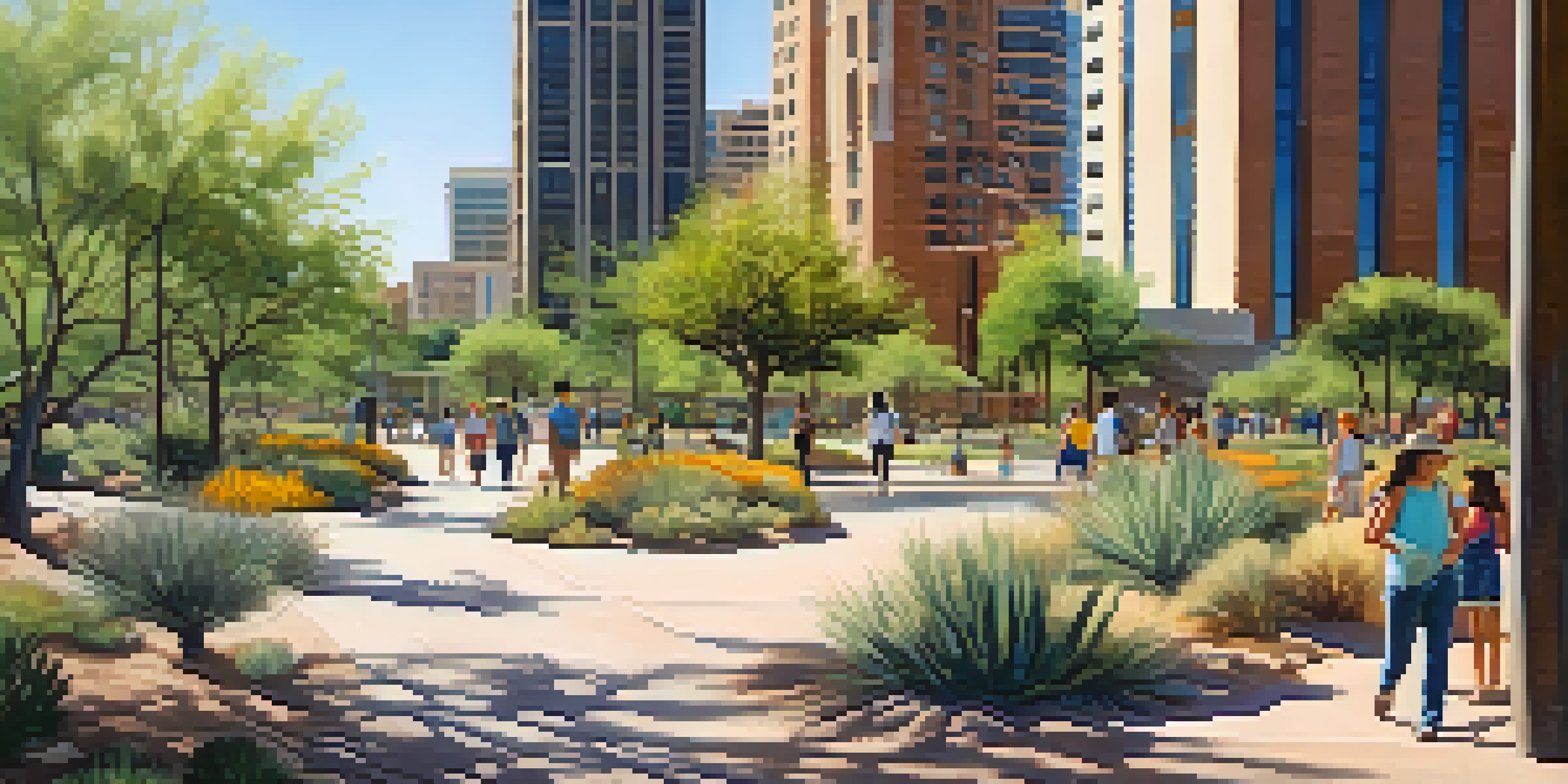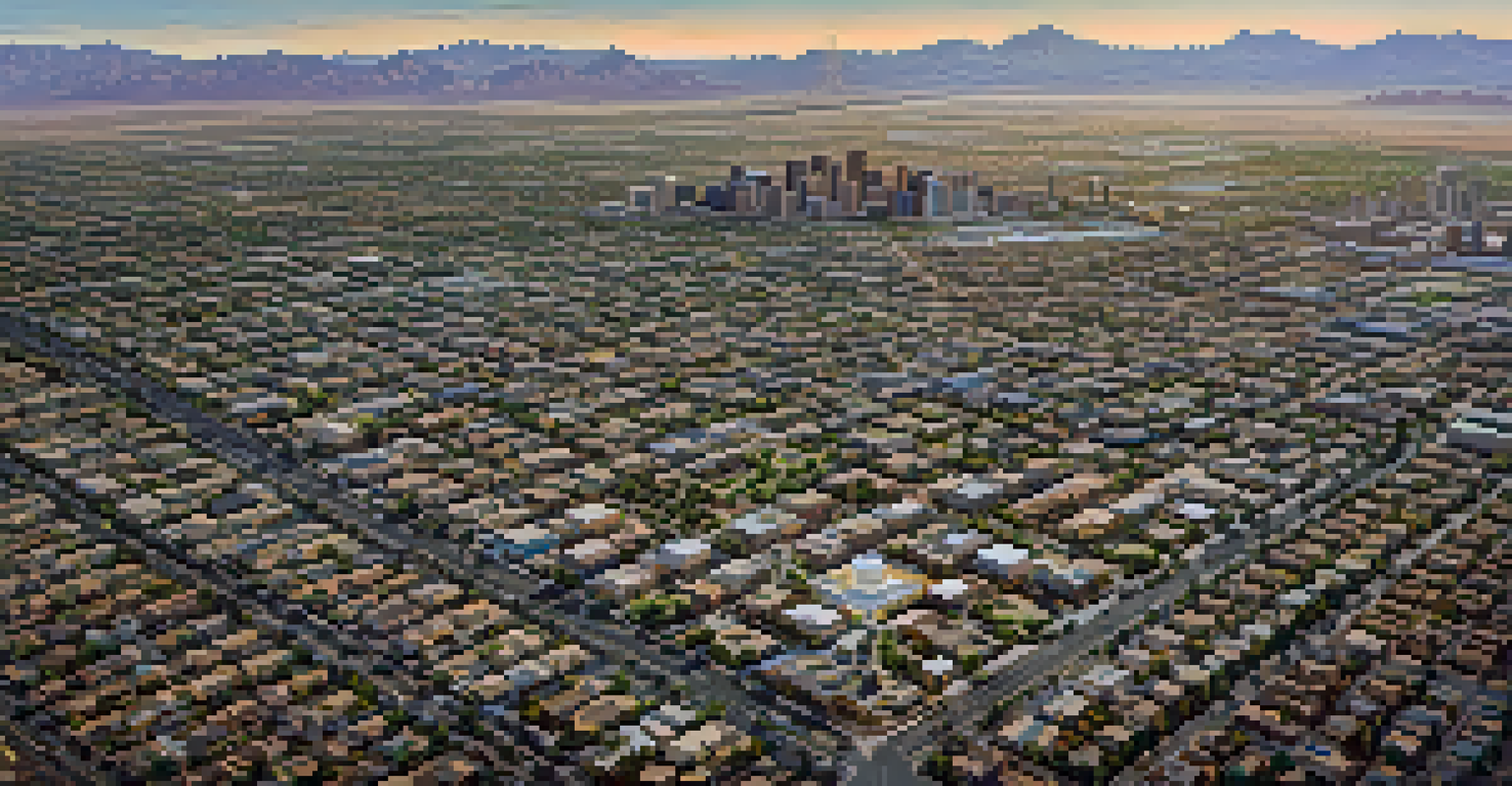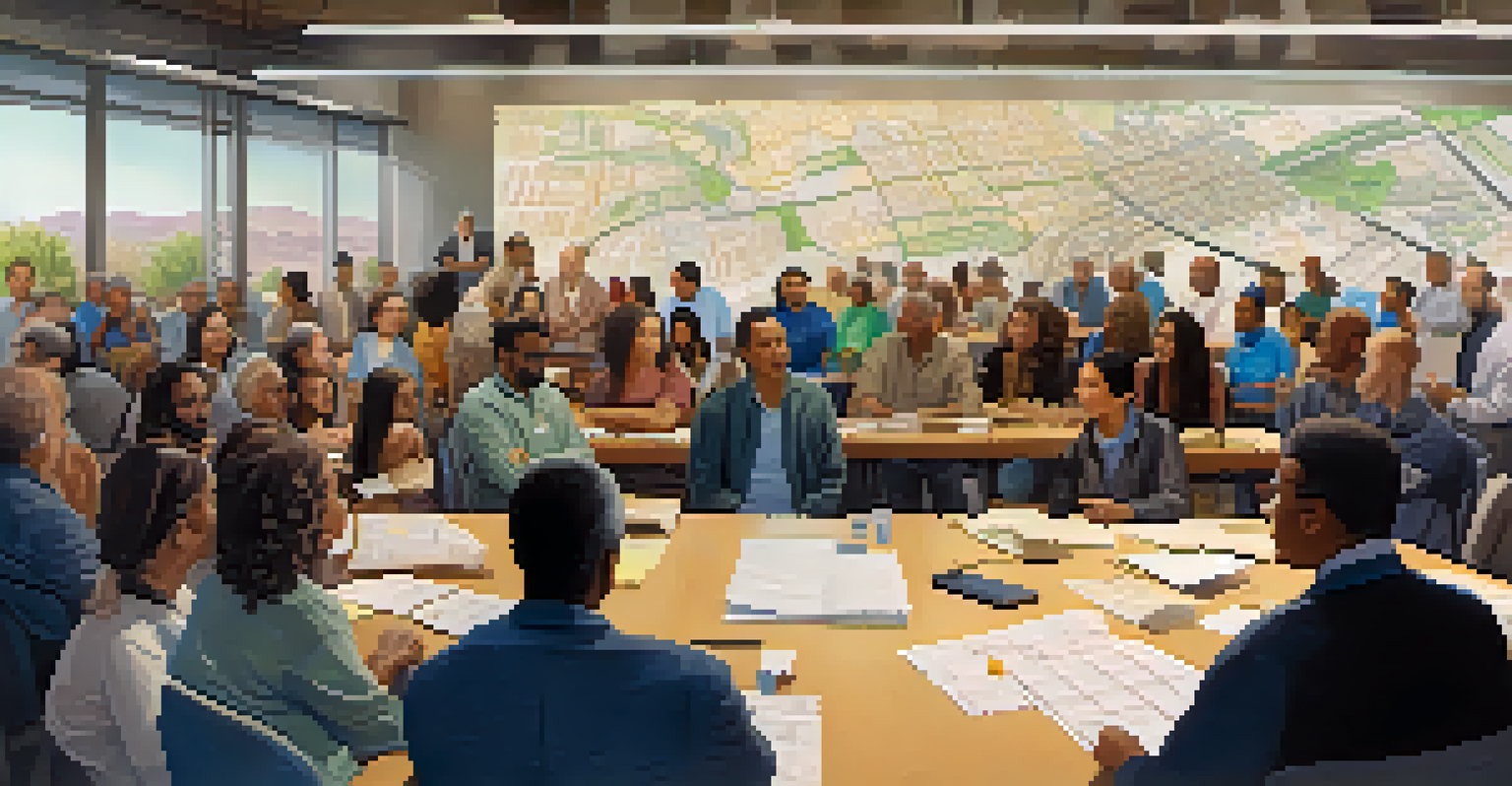Sustainable Urban Development in Phoenix: Challenges Ahead

Understanding Sustainable Urban Development in Phoenix
Sustainable urban development refers to creating cities that meet the needs of the present without compromising future generations. In Phoenix, this concept is crucial as the city grapples with rapid population growth and environmental challenges. The goal is to balance economic growth, social equity, and environmental protection, making the city a better place to live.
Sustainable development is about far more than just the environment; it’s about social justice, economic growth, and equitable access to resources.
However, sustainable development isn't just about building green spaces or energy-efficient buildings. It involves a holistic approach that includes transportation, waste management, and community engagement. Phoenix needs to integrate these elements to create a thriving urban ecosystem that benefits all residents.
Moreover, the unique desert environment of Phoenix poses both opportunities and challenges. With the right strategies, the city can harness its natural resources, but it must also address serious issues like water scarcity and urban heat islands that threaten sustainability efforts.
Population Growth: A Double-Edged Sword
Phoenix is one of the fastest-growing cities in the United States, attracting new residents with its warm climate and job opportunities. While this growth can boost the local economy, it also puts pressure on infrastructure and resources. The challenge lies in accommodating this influx while ensuring that development remains sustainable.

As more people move to the area, the demand for housing, transportation, and services increases. This can lead to urban sprawl, which not only consumes more land but also increases commute times and pollution. Balancing the needs of a growing population with sustainable practices is a critical hurdle for city planners.
Sustainable Growth is Essential
Phoenix must balance rapid population growth with sustainable practices to ensure a livable environment for future generations.
Additionally, the city must consider the long-term impacts of this growth on its environment. Ensuring that new developments include green spaces and sustainable transport options can help mitigate some of these effects, but it requires careful planning and community involvement.
Water Scarcity: A Looming Crisis
Water scarcity is a pressing concern for Phoenix, given its location in the arid Sonoran Desert. With a growing population, the demand for water is increasing, leading to concerns about sustainability. The city must find innovative solutions to manage its water resources effectively.
The greatest threat to our planet is the belief that someone else will save it.
One approach is to invest in water recycling and conservation programs. By treating and reusing wastewater, Phoenix can alleviate some pressure on its freshwater supplies. Community education on water conservation practices can also play a significant role in reducing consumption.
Moreover, the city is exploring alternative sources of water, such as rainwater harvesting and desalination. These methods not only provide additional water supplies but also promote sustainable practices that align with the broader goals of urban development.
Transportation Challenges in Expanding Urban Areas
As Phoenix continues to expand, transportation becomes a critical issue. A heavily car-dependent culture leads to traffic congestion and increased greenhouse gas emissions. Shifting towards more sustainable transportation options is vital for the city's long-term health and sustainability.
Public transit systems, such as light rail and bus services, need to be expanded and improved. By making public transit more accessible and appealing, the city can encourage residents to leave their cars behind. Additionally, investing in bike lanes and pedestrian-friendly infrastructure can promote healthier, more sustainable commuting options.
Water Management is Critical
Innovative water conservation strategies are necessary for Phoenix to address the increasing demand and scarcity of water resources.
Furthermore, integrating technology into transportation systems can enhance efficiency. Smart traffic management systems can help reduce congestion, while ridesharing options can offer flexible solutions for residents without cars. These strategies can significantly contribute to a more sustainable urban transportation network.
Urban Heat Islands: A Growing Concern
Urban heat islands (UHIs) occur when cities become significantly warmer than their rural surroundings due to human activities. In Phoenix, this effect is exacerbated by extensive asphalt and concrete surfaces, which absorb and retain heat. Addressing UHIs is essential for improving the quality of life in the city.
One effective way to combat UHIs is through increasing urban greenery. Planting trees, creating parks, and implementing green roofs can help cool down neighborhoods and improve air quality. These initiatives not only mitigate heat but also promote biodiversity and enhance community well-being.
Additionally, urban planning strategies that prioritize reflective materials for buildings and pavements can reduce heat absorption. By combining these approaches, Phoenix can work towards a cooler, more sustainable urban environment that benefits all residents.
Community Engagement: The Key to Sustainable Development
Community engagement is crucial for the success of sustainable urban development in Phoenix. Residents must feel involved in the decision-making process to ensure that developments meet their needs and reflect their values. Active participation fosters a sense of ownership and responsibility towards local initiatives.
Creating forums for discussion, such as town hall meetings or online platforms, allows residents to voice their opinions and contribute ideas. This collaboration can lead to more innovative solutions that address specific community concerns, such as affordable housing or public transportation.
Community Engagement Drives Success
Active participation from residents in decision-making processes is vital for the success of sustainable urban development initiatives in Phoenix.
Moreover, educational programs can empower residents with the knowledge they need to engage in sustainability efforts. By informing the public about environmental issues and sustainable practices, Phoenix can cultivate a community that actively participates in shaping a better urban future.
Policy and Governance: Framework for Sustainability
Effective policies and governance are fundamental to achieving sustainable urban development in Phoenix. Local government plays a pivotal role in setting regulations and standards that promote sustainability across various sectors. Collaborative efforts between city planners, developers, and the community can lead to impactful policies.
Additionally, funding and incentives for sustainable projects can encourage developers to adopt green building practices. By prioritizing policies that support renewable energy, efficient public transit, and sustainable land use, the city can drive meaningful change.

Monitoring and evaluating the effectiveness of these policies is equally important. Regular assessments can help identify areas for improvement and ensure that sustainability goals are met. A proactive approach to governance can create a resilient framework that supports Phoenix's journey toward a sustainable urban future.